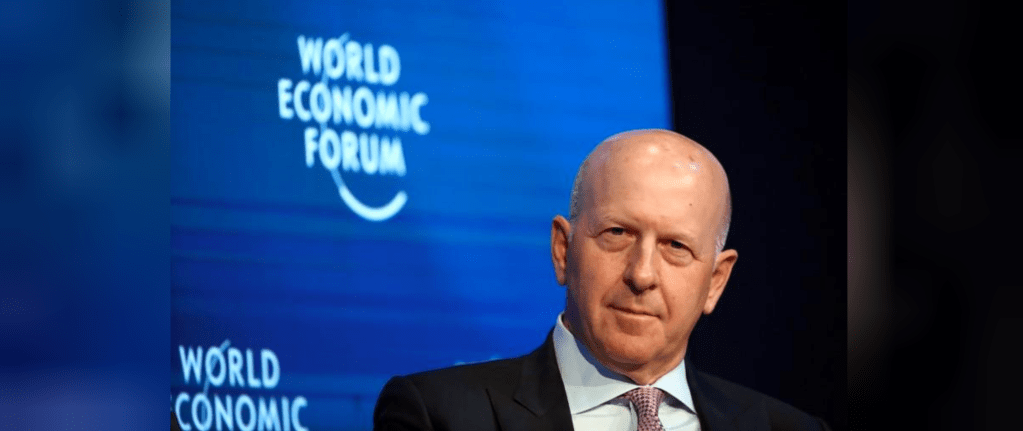Some of the biggest banks in the United States are among the most powerful institutions in the world. But like every incumbent, they still have to hustle to stay relevant. Morgan Stanley has increasingly gotten behind investors who say they want to see more direct listings, for example. Some of those investors wield a lot of influence after all, and if you can’t beat them (and you want to stay ahead of the competition), you’d better join them.
Now Goldman Sachs has made an announcement of its own that’s very much a part of the times: its CEO, David Solomon, today told CNBC that beginning this year, Goldman will no longer take companies public if they don’t have at least one “diverse” member on its board of directors.
“Starting on July 1st in the U.S. and Europe, we’re not going to take a company public unless there’s at least one diverse board candidate, with a focus on women,” Solomon said specifically on the network’s “Squawk Box.”
Some will, perhaps rightly, see the announcement as little more than marketing. After all, it’s already widely viewed as unacceptable for a company to go public without at least one female board member and preferably far more “diversity” than that. WeWork, for example, tried to go public last year with an all-male board, only to realize soon after that if it wanted to pursue an initial public offering, it had better mix it up a bit. (Of course, by the time it amended its S-1 to name Harvard professor Frances Frei as its first female board member, its offering was already starting to implode.)
Adding one’s first female board member ahead of an IPO is such a cliche at this point that the more interesting question is how close to the filing a related announcement will be made.
Airbnb, founded in 2008, brought aboard its first female board member in 2018, so let’s call it two years ahead of its presumed 2020 IPO. A decade is a long time to go without any diversity on a board, but it’s also not atypical. Slack’s first female board member, Sarah Friar, joined the company in March 2017, roughly two years before the company — eight years old at the time — staged its direct listing last year. Similarly, Peloton, the fitness company, now eight years old, brought aboard its first female board director, Pamela Thomas-Graham, in the spring of 2018; in September of last year, it went public.
More important to note at all three companies is what’s gone on at the employee level. Slack, for years, has made diversity core to its operations. Airbnb has also made gains in terms of employing a more diverse workforce. Peloton, which was roundly heckled for a recent “sexist,” “dystopian” advertisement, has a highly diverse management team.
Indeed, we’re not criticizing Solomon — when it comes to diversity, every little bit helps. But if Goldman Sachs really wants to maintain its place in the banking hierarchy, a much bolder stance would be to only take public companies that have diverse workforces, which is far more important — and beneficial to all stakeholders — than adding a woman and/or person of color to a board of directors as part of preparing an IPO.
Let’s be real here. Directors of public companies typically meet just four times a year to review quarterly results. It’s important and necessary, sure. But beyond ensuring that strategic objectives are being met and hopefully making useful introductions to the company, these roles are assigned more importance by industry watchers than they should. (They often pay ludicrous amounts given the work involved, too.)
Even pledging that Goldman is only going to take public companies that give back — say 1% of future profits to the NAACP, as one idea — would instantly put the bank in pole position for those founders and investors who truly want to be progressive. Goldman might miss out on a lot of business in the immediate term, we realize, but we’re guessing it’s a gamble that would pay off over time.
In the meantime, institutionalizing a process that’s already happening and doesn’t have nearly enough real-world impact may be better, just barely, than not institutionalizing that process. Though it’s shocking to note, according to Solomon, about 60 companies in the U.S. and Europe have gone public recently with all-white, male boards.
When we reached out to other big banks today to see if they might make a public commitment of their own regarding pre-IPO companies — we wrote to Morgan Stanley, Bank of America and JPMorgan — each of them, which have said in various ways that they are committed to diversity, declined to comment.
Said Solomon earlier to CNBC, “We realize that this is a small step, but it’s a step in a direction of saying, ‘You know what, we think this is right, we think it’s the right advice and we’re in a position also, because of our network, to help our clients if they need help placing women on boards . . . So this is an example of us saying, ‘How can we do something that we think is right and help moves the market forward?’”































Comment